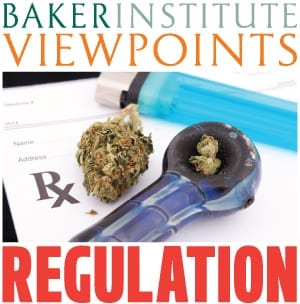Optimal marijuana regulation
The legalization of cannabis — marijuana — in Colorado and Washington has shifted the marijuana debate away from whether or not marijuana policy should change toward what that change should be. Our goal is not to increase marijuana use, but to take control of the supply away from criminals. Prohibition has failed to end marijuana use and has enriched organized crime, along with a host of other negative social consequences. We can imagine a government monopoly in which state-controlled stores would dispense marijuana in a tightly regulated system that would likely curtail marijuana use through the control of advertising, taxation and other regulations. While attractive to some, this arrangement is rarely discussed and is out of sync with the country’s general political tendency toward private enterprise. Continue Reading
